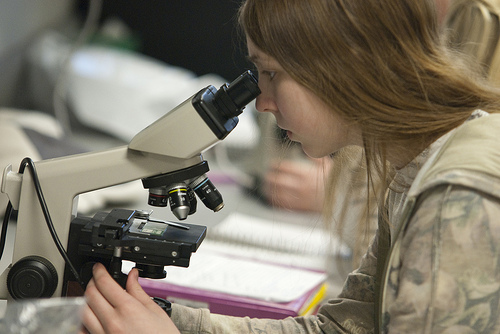In February, in a controversy known as “Fakegate,” a scientist impersonated a Heartland Institute board member to obtain internal documents and released them to climate bloggers. One of the findings within the documents was a note Heartland planned to spend $200,000 creating “educational material suitable for K-12 students on global warming that isn’t alarmist or overtly political.” Global warming enthusiasts immediately interpreted this as a challenge to their monopoly on science education, and reacted in alarm.
The following Q&A was conducted this week with David Wojick, director of the Science, Technology, Engineering, and Math Education Center, PhD, and senior consultant for the U.S. Department of Energy. He is developing Heartland’s science curriculum.
School Reform News: The Heartland Institute has taken a lot of fire from mainstream news outlets and the scientific establishment for an internal proposal to create a global warming science curriculum. Could you first start off by explaining your role in the project?
David Wojick: My shop, the STEM Education Center, will be developing the teaching materials for Heartland. We grew out of a major project for the U.S. Department of Energy, in which we cataloged all of the scientific concepts taught in K-12 science education, by grade level.
SRN: Could you outline why you and Heartland see a need for such material?
Wojick: Recent polls of K-12 science teachers indicate that many are trying to teach the global warming debate. But it is generally not covered in the textbooks and the vast majority of Web resources teach only one side of the debate, the federal government side, which is that humans are changing the climate in dangerous ways that have to be stopped.
SRN: Please sketch what material the curriculum is slated to cover and its general approach.
Wojick: Our approach is somewhat unique, in that it builds upon our cataloging effort. Climate related concepts are taught at every grade from kindergarten to high school, even though the concept of climate itself is normally not taught until high school. Climate related concepts like weather, weather forecasting, droughts and floods, hurricanes, etc., are taught much earlier, and the global warming debate may enter at any of these points. We are building small lesson plans to present the debate at each of these stages. Each lesson fits within the present curriculum.
SRN: Now, can you tell me what has been the general public reaction when plans for this curriculum were stolen, then leaked?
Wojick: The general public reaction has been mixed. Some people love the idea while others hate it, because this is a great debate. The establishment hates it.
SRN: Why do you suppose the scientific and media establishment reacted this way?
Wojick: Because they are committed to the proposition that humans are dangerous to the climate, a view that has become quite controversial. This is one of the greatest scientific debates in history. Unfortunately it has become politicized.
Twenty years ago the U.S. Government endorsed the hypothesis of human induced global warming, when the science was immature. Since then we have done about $40 billion in climate research and a very different picture has emerged. Much, perhaps most of the warming may be entirely natural, we really do not know how much at this point. There are now multiple competing hypotheses, ranging from ocean circulation to solar variability. The debate among scientists is fierce, but many among the media, scientific, and government establishments refuse to acknowledge even the existence of this debate. It is a sorry state of affairs.
SRN: Is the controversy going to make writing and disseminating the curriculum more difficult, and why? What impact do such reactions have upon scientific inquiry and an unpoliticized education?
Wojick: The scientific controversy is the curriculum, so that is not a problem. I have been studying and tracking it for many years. I am sure that dissemination will be politically controversial, which presents certain obstacles, but many teachers are already trying to teach the debate. It is unfortunate that K-12 science has become embroiled in the political side of this debate, but the science itself is very interesting.
SRN: Readers, we’ll do a follow-up Q&A. Post your questions to see them included then.
Image by Jeremy Wilburn.





